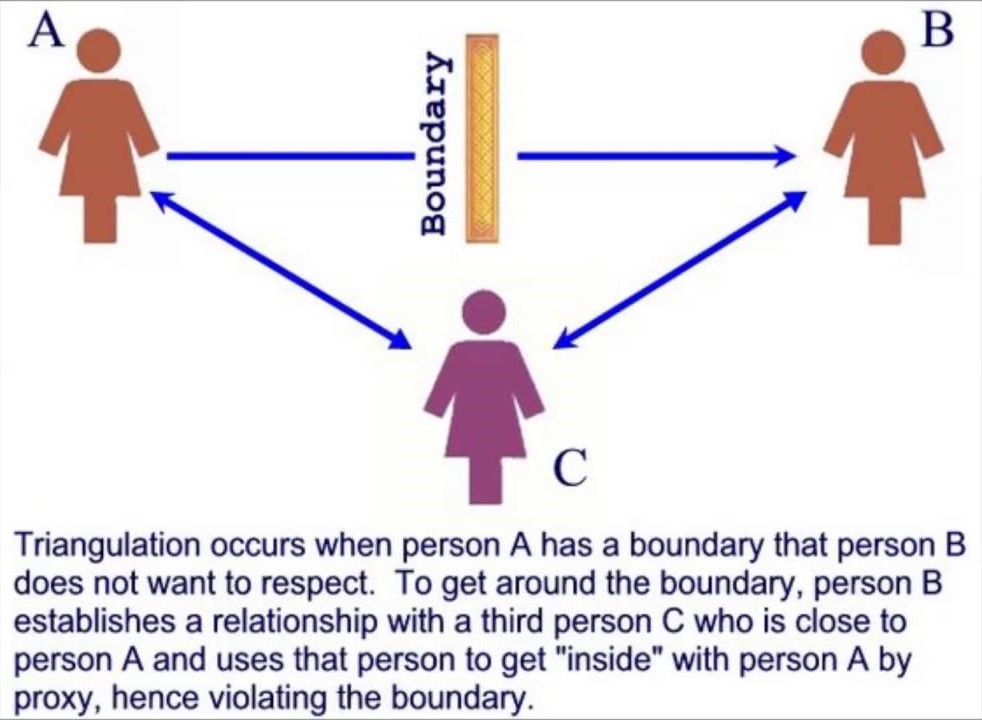May 2022

Do not believe every spirit but test the spirits to see whether they are from God, because many false prophets have gone out into the world.
1 John 4:1
Foreword
This article was difficult to write because I had so much information from which to choose, much of it from personal experience. Even after much culling, there is still a lot of content. I believe all of it to be valuable.
Please bear in mind when you read this that I am not speaking against the Bible or the spiritual wisdom and instructions from God contained therein. I am not proposing that we should disregard God’s commandments as written in the Bible. I am speaking against religious leaders who twist these words into something they do not mean, to gain personal advantage or control over others.
Some of my observations about these questionable religious leaders dovetail with my experiences with cults. Someone will inevitably proclaim that I am unqualified to make these observations because I do not hold a degree in something in which they feel I should have a degree to write about this. To them I respond … a combat veteran has infinitely more experience in the trenches than a person with a military history degree who has never set foot on a battlefield. This has been my battlefield, and these are my observations and experiences. People in the trenches need to know how to protect and defend themselves. Moreover, many people who make these claims are often hiding things that they themselves do not want revealed by the “uneducated” digging too far. In a short, I don’t much care what they think. Lofty, theoretical academia is of no practical use when conscienceless leaders destroy people’s lives.
Introduction
So, how can you tell a false religious leader from a genuine one? In a nutshell, a genuine one both speaks and follows God’s word. The false ones often do a great job at speaking it, but their actions do not match their words. Unfortunately, this is often difficult to discern. Here is some of the subterfuge they use when talking a good game, but not walking the walk. In essence, it is a checklist for spotting people who use religion to manipulate and control others.
Do not assume that just because somebody professes to follow the same faith as you, that they are a good person who will not try to use and exploit you. Full disclosure, I am a believer and follower of the God of Israel. I study and endeavor to follow both the Torah (Old Testament) and the New Testament. I also seek reputable and capable teachers of both. What I have found is that these teachers are very difficult to find. False teachers and scam artists, however, are in abundant supply. With the abundance of these false leaders, it is no wonder there are so many atheists and agnostics in the world. Not only do these leaders not walk the walk they talk, but they also use faith to manipulate and exploit others. Who would want any part of that? These people represent God falsely and drive people away from who God really is. They will pay a heavy price for it eventually. Of course, that does not directly help those they manipulate and exploit in the present.
These are some experiences I have had with false religious leaders. First, I cover four common assertions that false religious leaders use as their foundations. These are:
- Godly Authority
- The One True Faith
- Building the Sanctuary
- Surrender Everything
Then I will outline some of the more common tactics they use to manipulate and control others.
Assertions
Their spins all have similar foundations that appear rooted in the Bible but have been twisted to fit the personal goals of the one doing the spinning. Four of the main ones are godly authority, the one true faith, building the sanctuary and surrender everything. All four of these weave together as the outward, public goals of the false leader’s “ministry.” In and of themselves, they are biblically correct and accurate. Cloaked behind them, however, are the leader’s manipulative efforts to misdirect service to God towards service to himself.
Godly Authority (Assertion #1)
Obey your leaders and submit to them, for they keep watch over your souls as those who will give an account. Let them do this with joy and not with grief, for this would be unprofitable for you.
Hebrews 13:17
This is just one of many bible verses that false leaders throw out to manipulate congregants. They key here is the biblical definition of a “leader.” The false one will insist he is a leader, but his actions will prove otherwise. Even following bible doctrine does not automatically make a leader. He must be both obedient to God and have leadership qualities. Merely stating that one is a leader does not make one a leader.
Below is an actual email from a religious leader to his congregation. Note the insinuation that he is the godly authority whom they all must obey.
Be very careful who we are allowing into our lives or fellowship with. Just because they are in “The Bible” does not mean that it is a good seed. Any person who refuses to follow godly authority is NOT of God. Remove them from your lives. It will not profit you. Remember what happened to Korah* and those who did not remove themselves from his tent. Let us be submissive and humble for the sake of the Lord.
* Korah was a Hebrew leader who God killed for rebelling against Moses’ authority (Numbers 16:1-40)
On the surface, this sounds good, but who defines “Godly authority”? The religious leader speaking this, of course. Use of the Hebrews quote is intentional because it is vague in this case. Who is the legitimate “leader” and what exactly does it mean to “obey”? Neither are defined, so the listeners fill in the blanks. People of faith are usually seeking to be better people in terms of obeying God and His word. They do not want to go against God’s word, so they will listen intently on how to ensure they are indeed obedient. The false leader twists that into obedience to him
I saw another leader use these verses to a similar effect.
My son, fear the king, and do not associate with rebels. For their destruction will arise suddenly, and who knows the ruin both God and the King can bring?
Proverbs 24:21-22
Of course, the false leader is representing God and the king as the authority figures and those who disobeyed his instructions from God are rebels marked for destruction. The image is very powerful and so was its effect on the congregation. False leaders cherry-pick these kinds of metaphorical verses on purpose because they know the emotional impact on the church members. I’ve known some to try out various ones to see which has the best effects.
“I will set up shepherds over them who will feed them; and they shall fear no more, nor be dismayed, nor shall they be lacking,” says the Lord.
Jeremiah 23:4
I have seen this verse from Jeremiah used by religious leaders to manipulate congregations into obeying them. “Respect the shepherds God places over you,” were the words of one leader. However there is a small issue using this verse in that context. Jeremiah 23 speaks of a time to come, when the earthly governments are deposed and Jesus sits on the throne ruling the earthly kingdom. This clearly has not happened yet. Can and does God still appoint teachers and leaders? Yes, I believe He does, but the only way to discern them is whether they accurately teach His word and also follow it themselves. The above case is not an accurate teaching. If a religious leader has to tell you that he is your authority, then there is a good chance he is not. Real spiritual leaders will not need to tell you this, they will exemplify it through their actions.
You need not look very closely however, to see that the leader answers to no other authority figure. He will say he answers to God, but that is not biblical. There is only one high priest and chances are very good it is not him. The “I answer to God” claim is the refuge of false leaders who in reality answer to nobody. After all, who can ask God if this is true? Watch instead to see if the leader follows God’s commandments.
The Final Authority (Assertion #1)
The leader is the final authority on who belongs and who does not. He will bend, twist, and even break the religious doctrine to enforce this, never accepting any responsibility for wrongdoing. It is always the other person’s fault, even if they are completely within the doctrine and acting correctly. Very few of these expulsions and dismissals are due to any real misconduct, but rather due to not deferring completely to the leader and his desires.
One Man Show
As much as the false leader claims equality of all members and a democratic style, you had best believe that it is all his way or the highway. Other people’s input is valuable to him only as far as it aligns with his desires and benefits him in some tangible way. Of course, this is all portrayed as being for the church, not him (See Bait and Switch Theology below). He will spout off verses like these …
But now indeed there are many members, yet one body. And the eye cannot say to the hand, “I have no need of you”; nor again the head to the feet, “I have no need of you.”
1 Corinthians 12:20-21
… to indicate that everyone has an important role within the congregation. However, he will always be the head and the brain. Never the hand or eye. That is for everyone else who provides the work.
These one man show leaders are more prevalent in small congregations who do not have deacons, elders or any kind of oversight committees. The leader is often the treasurer as well, so there is no second set of eyes on the money that comes in. One false leader appointed his wife the treasurer, so he could (very vocally) maintain the illusion of propriety. The leader makes all the decisions without needing approval or counsel from anyone else.
Head of State
Some religious leaders in rural areas portray themselves as the leader of small communities of followers, even organizing adjoining parcels of land into a community. This can look very appealing to believers of the same faith, as a place of like-minded individuals who can forge a community together. However, history has shown that combining the offices of religious and government leaders is a bad idea. Historically, well governed and maintained societies have religious leaders who are subordinate to the government leaders. Influential advisors, but not the final decision makers or holders of power. Even biblical Israel, God’s model earthly government, had both a king and high priest. A cursory Google search is replete with examples of the disastrous effects when a leader holds both governmental and spiritual offices, even in modern times.
The Visionary
Most people claiming to be visionaries are nothing more than charismatic con artists. Be very wary of these types, not just in religion, but also in the business world, finance, and politics. Always watch and test to see if they accomplish anything concrete, other than influencing and manipulating others. Does anything of which they speak actually come to pass, in a specific sense rather than some vague statement that can accommodate any outcome? These types of leaders can appear more knowledgeable, more capable, or more visionary than the quieter, yet genuine, religious leaders. Do not mistake their volume and charisma for ability and sincerity. It is like watching a politician on stage over time. They make all these promises. The promises never materialize. Then they continue like the promises were never made, on to the next worthless promise (See Mental Misdirection below).
Misplaced Authority
When I was a young officer in basic branch training, the captain in charge of our class gave us some unexpected advice. He said, “When you arrive at your unit, there will be financial advisors waiting to see you. They will drop the name of a prominent retired general as an endorsement for their financial products. You may even meet the prominent retired general. Let me be very clear on this. Just because a man becomes a general, it doesn’t mean he knows s— about financial matters. On the contrary, most generals screw up their finances by the numbers.” His advice was spot on. I have found the same analogy to be true about religious leaders.
The false religious leader will often try to exert influence or authority in areas where he is not qualified. Some examples are finances, career, relationships, and parenting. Listen carefully. Just because a person has expertise in spiritual matters, this does not translate into expertise in other areas. This is assuming they even have spiritual expertise and are not faking that too. False religious leaders doing this usually have an ulterior motive to influence or manipulate you for their benefit. Below are some ways these leaders will go about it.
Interpersonal
Marriage, relationship, and family counseling are a common way for religious leaders to cross the boundary into you your personal business. Since the bible has commandments in these areas, it is only natural for church members to feel the leader has the authority to speak into them. A sincere leader will not overstep into areas in which he has no expertise. A false leader will grab this opportunity to gain a tighter hold over the church members. (See Interpersonal Relationships below.)
Financial
The one and only goal here is to induce the person to give their money to the church, which means the false leader. The leader of my former congregation became angry when I chose to pay off my home instead of taking his recommendation to give some of the money to the church and party (yes party) with the rest. I am certain that the “party with the rest” part was to try to manipulate me. He never confronted me directly about not taking his “financial” advice but did slander me to people about it behind my back.
Career
I have seen more than one false leader advise a church member not to move to a different location to pursue a job or career there, even though there was no biblical reason preventing it. It simply represented a loss of revenue and free work for the leader, so he proclaimed that “God would not bless it.” These types claim to know so much about what God blesses, thinks and wants that you would imagine they have lunch with Him daily.
The One True Faith (Assertion #2)
Judaism, Christianity, and other Bible-based faiths are inherently exclusive and, as such, cannot be held simultaneously with conflicting faiths and world views. Those pretending otherwise are not following any faith, but rather selecting what they like as though they were at a cafeteria counter. Many people follow this “cafeteria counter” faith, but there are also those who sincerely desire to follow one faith exclusively. False religious leaders target this by claiming they are the gateway to that one true faith because they possess the wisdom necessary to follow it correctly. The only way to do it right, and hence be saved, is to do it their way.
Sacred Science
This is the idea that the leader holds special knowledge or a connection to God that is above the regular variety offered by other congregations, even of the same faith. It is a type of magical thinking in which the church members must accept what the leaders says and obey it without any tangible proof that it is real or accurate. This can consist of claiming visions or dreams from God, arcane mystical knowledge not available to others, or an ancient decoding system to discern hidden meanings within bible verses.
This is a no-lose proposition. If a “dream” comes true, even somewhat, then the leader’s direct line to God is validated. If it does not come true, then the leader places the blame on the member, claiming their “faith” was not sufficient. For larger “prophecies” the leader can blame the entire congregation, or even the world, for not having sufficient faith. This has the added advantage of keeping the people in a position of weakness feeling that they are failures. The leader tried hard, but they just did not come through for him (and God).
With respect to the mystical knowledge or coding system, who will be able to dispute the leader as nobody else understands it? That is assuming it is even understandable and not fabricated outright. This portrayal of superior knowledge gives the false leader an aura of wisdom and believability that others embrace.
Building the Sanctuary (Assertion #3)
This assumption involves likening the leader’s physical church building and property to God’s former temple in Jerusalem, or even God’s celestial temple in heaven. Thus, congregation members should give money, time and effort to the leader’s property as though it belonged to God Himself.
An actual email from a religious leader to his congregation read:
If we want God is our midst, then we are commanded to help build the sanctuary! We are truly grateful for all the participants so far and we are truly blessed in how God is multiplying the fundraiser for His Sanctuary here. The Fundraiser will end soon. If you haven’t already committed, consider getting involved in this major fundraiser.
[Translation: If you want God in your life, continue to pay to improve my property.]
This same leader said …
Exodus 25:8 states, “Let them make Me a sanctuary, that I may dwell among them.” You can only have a relationship with God through a congregation and you must partake in building the sanctuary. The sanctuary is not for me, the pastor. I can do a sermon anywhere. I’ve done it all. The sanctuary is for God to test your faith. It is not for me, it is for God.
This sounds wonderful, but the verse is taken out of context. God is commanding Moses to have Israel build a sanctuary. It is not some religious leader claiming God speaks to him or moved his heart. It was also among the people of Israel, not a church on the corner of 5th and Main or in a rural plot. One single sanctuary built in the specific place God commanded. God is not commanding thousands be built for Him to dwell in all of them. If the leader truly can teach sermons anywhere, then why isn’t he doing it in a town where there are more people listening? It is one thing to try to run a small congregation with a dearth of funds. I applaud that. However, to tell people that them paying for and building things on your private property is not for you is disingenuous.
In practice the leader was grossly mismanaging the incoming funds, treating them as his personal bank account. There was no actual accountability, his claims to the contrary notwithstanding. Furthermore, he jumped between ideas and projects so fast that very few were completed. One would think that if God was calling him to do something, then God would not change His mind so often. Clearly, God had no part in this.
Surrender Everything (Assertion #4)
You are only worthy of God if you surrender everything of yourself to Him. This includes your money, your time, your work and your obedience. Since you cannot physically give it all to God directly, you give it to the religious leader as God’s representative here on earth. This creates a tangible relationship between you and the leader with only accountability on your part, not his. You are accountable to give your all, but whatever happens can be conveniently attributed to or blamed on God. This is a very base corruption of God’s biblical commands about generosity and humbleness, twisted to benefit the religious leader.
There is an omnipresent guilting and shaming built into this. Anything you do for yourself will be declared as selfish and not for God. I believe it is true that one should place God first in their lives, but it is not up to a religious leader to be the arbiter of that, especially when he stands to gain the most from your generosity. He can teach, but not dictate. Be very wary of that line being crossed. Another message from a religious leader …
Everything we possess is God’s. Man should willingly use his wealth and his body to fulfill the wishes of heaven. By contributing to this congregation, you partner with God to create an new Garden of Eden that God will gather together.
Notice that the first part of the message is correct, but then the leader misdirects it to funneling the money and effort into the church infrastructure, which happens to be on his property and in his name. He was also fond of quoting the verses in Acts 4 where the disciples sold all their possessions and lived communally. However, Acts 5 states that God struck dead a couple who withheld proceeds for themselves while claiming to give all. They were killed not for withholding, but for acting like they were giving more than what they did. Shouldn’t this apply even more so for a religious leader who misappropriates things given to God? You will see this common theme throughout, where false religious leaders only partially follow God’s commandments in as much as it benefits them personally.
Tactics
Some of the most effective lies, frauds and manipulations are built upon a foundation of truth. Especially a universal truth that people widely believe and accept. Going against the leader’s teachings or directives is then spun as denying the truth, or even violating a civilized tenet of decency or respect. People rarely dig deeper to see if what the leader states has any connection to that truth. Simply stating the “universal truth” usually shuts down critical thinking and people fall into line of their own accord or because they do not want others to attack and vilify them. The tactics listed below make use of partial truths to manipulate church members into fulfilling one or more of the misdirected foundational assertions above.
Affinity Fraud
This is a con method that targets people belonging to a particular community or group, typically that in which someone pretends to be a member of the group to gain the trust of others.
Be very careful, even with organizations that profess the same faith you follow. Sharing a certain ideology does not automatically make others sharing it trustworthy and safe people. Even those who sincerely believe they are following it can have toxic traits or characters that can make your life a living hell. Those who are not sincere can be even worse, using your own beliefs to ensnare and control you, while you continue to believe it is your own free will. Use discernment, double check everything they say with reputable third-party sources and take care not to let your emotions override your judgment.
Bait and Switch Theology
The leader gets people all worked up with bible verses and stories about giving to God, to Israel, to the temple, to the church, or whatever other godly recipient he can contrive. He then skillfully inserts himself as the recipient, couched as a steward or representative of God. Watch if these leaders are good stewards with what they receive or if they treat it as their own personal property.
I have also seen false leaders hammer the people with obedience to God verses, then insert themselves as the intermediate authority. Very few people question whether this intermediate authority is genuine or used correctly.
My former pastor would repeat verses about people working for God, working for His temple, and working for His kingdom. He would then steer them to work on his own personal endeavors, portrayed as “church” efforts. He would even have them work on the side businesses of senior congregation members, portraying it as “helping church family.” He would then get a cut of the profits “for the church.”
Pray For Me
This subtle request can also be a powerful form of impression management and mind control. It is often paired with statements that the religious leader will be taking a trip to minister to others, attend some function or engage in some other worthy, but difficult, endeavor. It has multiple facets. First, it portrays the religious leader as a humble and diligent servant without sounding like he is bragging about it. Often it is bragging and attention seeking. “Look at all the pious and selfless things I do, at great sacrifice to myself!” Second, it gets the congregation accustomed to taking orders from the leader, framed as “requests.” They are acknowledging him as their defacto leader. Third, it frames the leader as the one who determines what is (and what is not) worthy of prayer. The congregation does not decide that. If they want prayer for someone, they must ask the leader to announce it, which again frames him as the pious and selfless leader and godly authority.
There is no accountability to determine whether the leader is doing these things or travelling to these places. He could be spending a weekend carousing in Las Vegas or on a cruise with his wife/mistress on the congregation’s dime, returning to regale them with stories of how difficult but worthwhile it all was. He relies on the fact that a normal person would never suspect a pastor of lying about something like this.
Preying on the Weak and Vulnerable
This preying is often done under the guise of helping others, which happens to also be a favorite tactic of psychopaths. Reaching out to people who have lost a loved one is a classic example. Helping people when they are down instills a sense of trust in those people towards the religious leader, who they really know nothing about. It also targets the person’s innate desire to reciprocate. The religious leader did something for them, so now they feel obligated to do something in return. Of course, it does not look this way on the surface. The religious leader is just a kind and selfless person helping others in need – until the time comes to cash in the voucher. It is like any kind of salesperson trying to gain the customer’s confidence to make the sale, except the sale here is an ongoing timeshare controlling your life.
This tactic is difficult to discern. There are many people who are sincere in helping and ministering to the vulnerable. They both look the same on the surface. You can only watch and wait to see if ulterior motives later come in to play.
Here are some common targets for manipulative and exploitive religious leaders:
- Single mothers
- Divorced women
- Women whose husbands refuse to join the group (almost never men whose wives refuse to join)
- People who have just lost a loved one
- Addicts or former addicts
- People with troubled pasts
- People with psychological problems
- Financially disadvantaged people
- People who are new to the faith
- People on the fringes of society
Appeal to Emotion
These types of leaders love to get people fired up, excited and emotional. That is why they get people shouting, waving their arms, and dancing as often as possible. There is nothing wrong with these things and the Bible even encourages them, but the leader turns this emotion to their own personal desires and gains rather than God’s. Need more money? Get them all worked up and emotional first. Need the congregation to come work on the church (i.e., personal) property over the week? Get them dancing and waving their hands first. Keep people in a heightened and aroused state of mind where they expect and see miracles. People become more suggestible and follow the leader’s directives.
Religious leaders of this type often cannot tolerate more reserved people who would rather sit quietly and watch the others dance, sing, and shout. A reserved person might find some time in the quiet of his or her mind to examine and question things. That cannot be tolerated, so the leader will encourage, even shame, them in to joining in by quoting bible verses that mention rejoicing and singing, then claiming these are requirements. They can also skillfully use other members to apply peer pressure against more reserved people. I have been in congregations where all men are pressured to stand up and come to the front of the congregation and begin dancing. This is a gross violation of personal boundaries and in no way biblical.
Praise
The leader calls members flattering adjectives or nouns, like righteous, holy, or saint. These are often vague and difficult to define, so the member feels the leader’s superior knowledge has recognized something good in them. Conversely, if the leader later withdraws this praise, the member is eager to toe the line to recover it.
Interpersonal Relationships
Questionable religious leaders often insert themselves into interpersonal relationships, telling each party how to act and what to do in “the name of God,” with the goal of controlling them all. Lines are blurred, even erased, with the leader becoming intimately involved in other people’s marriages, parenting, and even dating. Using fathers, mothers, spouses, children and friends, the leader can influence others to join the congregation, obey and toe the line, or even cut off and disown those who refuse to comply. This can have variants, with the more common ones listed below.
In one congregation in which I was a member, the leader made a young man who was having marital problems live outside in a tent on his (the church) property for several weeks. This was a huge violation of the man’s personal boundaries. A prison warden or military disciplinary unit would do something like this. Yet the congregation members seemed to have no problems with it. Some even applauded it.
The “Counselor”
Religious leaders will often assume the position of counselor, even officially stating they are such and holding counseling sessions. I have seen very few actually trained as counselors, but they will quickly state that their knowledge of the bible trumps any “worldly” knowledge on how to counsel people and help them solve their problems. This might work if the leaders would use God’s biblical wisdom, but they do not. Instead, they misuse and misinterpret the bible to achieve their personal ends.
Their advice seems geared mostly towards getting problem congregants to toe the line, dismissing the incorrigible, and forming unions of mutually reinforcing obedience to the leader. They will speak out of both sides of their mouths depending on the results they want. For example, they may “counsel” a woman to wait for several months or years to committing to marry a man who they are not sure will toe the line or is of little value to them (financially or otherwise). Conversely, they will rush the same woman into a quick marriage with a man who they consider obedient and high value. The “Counselor” is the superset used to implement many of the other methods below.
I personally experienced this when a former pastor counseled me years ago to divorce my wife immediately, as she was refusing to obey God. Behind my back, he gave my wife the same counsel to divorce me immediately because I was refusing to obey God. I surmise that he was just trying to separate us and then see which one would stick around and join the congregation, since we were not doing so as a couple. One of us alone, would have been weaker and more impressionable.
I’ve also experienced this dynamic outside of church. I worked for Christian company that had a chaplain’s department. One of the benefits the company offered was free counseling by private professional counselors. The chaplain managed this. I went for counseling on one occasion and the licensed counselor, also claiming to be a Christian, handed me some papers to sign “just as a formality.” I read through them carefully and the look on his face indicated that he had not expected me to do that. What I found in one of the documents he wanted me to sign, was authorization go release all confidential information we discussed to the company chaplain. I refused to sign it and asked him why the company chaplain needed to have access to what we discussed. He threw a bunch of unconvincing word salad at me and I still refused. I called the chaplain to see what this was all about, but he did not answer his phone. I left voicemails, which he also did not answer. I thought about going directly to see him, but decided against it. Instead, I just cancelled the counseling sessions.
I do not know for what reasons the chaplain wanted this information, but it seems a serious violation of ethics. The deceit employed by both him and the supposed Christian counselor does not speak very highly of their commitment to God’s word. This made me watch the chaplain much more carefully. He had a very cushy, director-level position which he had occupied for almost two decades, where he produced nothing of measurable value. There were some unusual circumstances where people involved in his bible studies or counseling programs suddenly left the company or, in one case, experienced problems with the authorities. Although I had no proof, I suspected it might be due to this unethical gathering of information. I can only surmise he wanted control over others. He became a man to be avoided, even feared. All this in the name of God and with the blessing of the Christian owner of the company.
Pairing With a Loyal Follower
I have often seen religious leaders try to marry a loyal follower to another person of value to the congregation, so that they can control that new person more effectively. For some reason, this usually follows the pattern of marrying a loyal female congregant to a male congregant who has either financial value or some skill the leader wishes to exploit.
One of these leaders once told me that God sent his wife a vision that I was to marry a certain woman in the congregation (who happened to be very loyal to the leader’s wife). When I refused to marry her, the leader and congregation eventually turned their backs on me and shunned me. After I was safely gone, the leader’s wife had another vision from God some months later for a new man in the congregation to marry this woman. This time it succeeded. One would think God, being omniscient, would provide the correct vision the first time. Of course He would have, which means there were no visions. Just lies to manipulate the men.
Using the Woman to Control the Man
The leader or his wife appeal to the woman’s emotional side, feminism, conservatism, anything … to portray the husband or boyfriend as not stepping up to the plate (i.e., obeying the false leader) and then have the woman make his life a living hell until he either toes the line or they split up and the leader gains another woman dependent upon him. I saw four different dynamics with respect to using women to pull their husbands into the group:
Enthusiastic Follower
Some husbands brought to the congregation by their wives became enthusiastic followers. This was a small percentage. Usually, it was the other way around, with the husband bringing in his wife. In most cases, if the husband was not on board first, there would eventually be problems of some sort.
Brow-Beaten and Dragged Down
This was a larger percentage than the enthusiastic follower. The husband came along and went through the motions to keep peace with his wife, but you could tell he was not into it. If he did not make any waves, he was permitted to stay. Just another warm body providing some income and possibly work.
Refusing to Join
This was probably the largest group. Some of these men were often already disconnected from their wives, choosing to remain married but not caring about or participating in what their wives did. Others grew fed up with the manipulation and control efforts, refusing to remain members of the church. The wife would remain, however. This was also tolerated if they did not prevent the wife from participating and contributing to the congregation.
Commanded to Divorce
This option was employed whenever one of the husbands in the Brow-Beaten or Refusing to Join categories put his foot down and tried to pull his wife out of the congregation. While a smaller percentage than the previous two, there were more of these than the Enthusiastic Follower. There was a sizable group of divorced women in orbit around the false leader and his wife.
Removing a Disloyal Follower
False religious leaders seem to have little or no tolerance for disloyalty. While pretending to be open minded, patient, and tolerant in public, they will move swiftly to expel anyone who questions their authority or does not display the proper enthusiasm over time. Anyone who gets in the way of his agenda is removed. This is also easier to do in small congregations where the leader is the sole arbiter of everything.
I saw one example of a man in a congregation who courted and married a woman in the congregation. When the leader discovered that the man would move his new bride 50 miles distant and away from the leader’s immediate control, he commanded the woman to divorce him and threw the man out of the congregation. She complied with the divorce and remained in the area living on the leader’s property. I later discovered that this was the second instance of the leader commanding her to divorce a man who would not obey him.
Almost all of the “disloyal” who are removed are men. In one church I attended, the religious leader threw men out of the congregation regularly, while amassing a loyal following of women now dependent upon him or the church. There was nothing sexual going on, just a simple power game. This is reminiscent of the “lost boys” created by cult leader Warren Jeffs and other fundamentalist religious leaders.
Peer Pressure
Think high school, except with a group of more refined and subtle adults. In my last congregation this pressure was exerted by initially inviting new members to church events, then later excluding them if they did not adhere well enough to the leader’s directives. This dynamic was attempted on me with unexpected results. I am an introvert who is more relieved not to be invited to events, so it did not have the intended result of making me more compliant. What then happened was an almost spasmodic flip-flop between inclusion and exclusion that bordered on ludicrous.
Another form of peer pressure was heaping praise upon people who gave of their time and resources, while at the same time mentioning what obstacles they overcame to provide these. Things like a job, being a parent, being old, etc. This had the effect of shaming and guilting all the people with jobs, who were parents and who were old that they were not doing the same.
Extracting Resources
This is the end goal of all interpersonal actions. Transferring of money, property, materials, time, and labor from the members to the leader. The intent is to have as many members of the congregation as possible to willingly and enthusiastically give as much as possible as often as possible.
Future Faking
A lot of projects, promises and activities that are loudly proclaimed, then never come to pass or are abandoned half-finished. The religious leader moves from idea to idea, project to project, requirement to requirement in an almost impulsive manner, never finishing or accomplishing much. Only loudly heralding the new ideas a short time later. Yesterday it was mission work, today it is a new church building, tomorrow it will be another flavor du jour. If something actually comes to fruition, it is usually through luck or the efforts of one or more members on their own.
Humbleness and Service
This consists of twisting biblical humbleness into subservience to the religious leader. It twists biblical service into service that benefits the religious leader. Work hard and do not complain, or else you are not following God correctly, or possibly even going to hell. If you watch closely, past all the words, the religious leader himself is anything but humble and serves nobody. However, he frequently and convincingly tells others that he is a humble servant. If you watch closely, you will also see the religious leader manifest other things he (and the bible) teaches against, but arrogance is the key that enables the others. He may loudly and frequently claim the members do not submit to authority or accept correction, but to whose authority does he submit? Whose correction has he ever accepted? Gods? How convenient that this is unverifiable, and we must simply accept his word. If he really accepts God’s correction it will manifest in his behavior and actions. Arrogance and manipulation are not such manifestations.
Giving time to God for service, a solid and good biblical concept, is twisted into service for whatever the leader deems necessary for the congregation. Watch closely to see who these activities benefit. Watch closely to see if they are consistent and well thought out. God would not be changing his mind every few weeks about the main effort and leave a half-dozen previous endeavors unfinished (see Future Faking above).
Cult of Personality
No matter how accurate and good their teachings seem, how humbly they present themselves, how genuinely they seem concerned about you and the other congregants, how much they claim to place God before anything else – make no mistake, it is all about them. If you do not believe me, watch how they react to a person leaving the congregation or somebody questioning what they say. They take it personally. In most cases, they will cut off that person entirely and ensure the congregation does likewise. They will spread rumors, even slander, couched as “church discipline” or “tough love,” all the while preaching against gossip. A normal, healthy religious leader will simply wish you well when you leave their congregation, perhaps stating they are sorry to see you go, but their door always remains open to you. Not these guys. When you choose to leave, you become an enemy to them.
The Mentor and Teacher
These types of false religious leaders will make time to talk with you at great length, sometimes even travelling long distances to do so. They are ready to engage at the drop of a hat, but it is not for the reasons you may think. Their motivation for doing so is the basic human principle of reciprocation. You will feel indebted to them, and they will eventually collect on that debt. They also enjoy both manipulating you and getting admiration from you. Refuse to provide those and you will see how quickly they do not have time for you anymore.
Talking often with you also gives them opportunities to mine for information they can later use to manipulate and control you more easily. They search for vulnerabilities, weaknesses, fears, relationship problems and anything else they can use in the future.
Mental Misdirection
The religious leader distracts members from mentally registering what he is doing. Screaming praise to God when something he proclaimed does not come to pass. Acting like a bad thing is really a good thing. Just keep talking and talking and talking, while ignoring that nothing is happening. It is the same thing politicians have done successfully for years.
False Persona
Fraudulent religious leaders will never present their real selves to the public. Nobody would buy all their over-the-top schemes and machinations right out the gate, so they will gradually ease new people into them. At first, they present a mainstream and reasonable façade, then slowly add more extreme things to use and exploit you.
Ironically, false religious leaders often tell you about their deceit up front, except that they will couch it as telling you who they are not. Phrases like these, when stated up front and without prompting, often indicate that they are exactly what they claim not to be.
- I am not a one man show
- I don’t take any credit
- We are transparent with our finances
- This is not my congregation, it is yours
- We are not a cult
Conclusion
In the final analysis, it is simple to detect these kinds of people if you just watch them carefully over time. Their words will not match their actions. Their pride and arrogance will be their undoing. Watch carefully what they actually do and compare those actions with the words that come from their mouths. A sincere leader will walk the talk. The hard part is preventing the damage they can do while you are watching. Some studies have indicated that up to 1/3 of religious leaders possess some sort of anti-social personality disorder like narcissism, or even psychopathy. Indeed, religious leader is one of the top 10 professions for psychopaths. I won’t list any citations. Google will give you hundreds of sources.

















